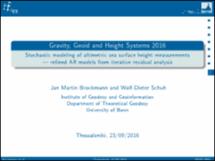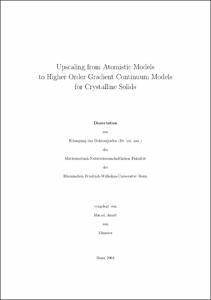Shang, Linmei: Technology adoption and upscaling of detailed farm-level models. - Bonn, 2023. - Dissertation, Rheinische Friedrich-Wilhelms-Universität Bonn.
Online-Ausgabe in bonndoc: https://nbn-resolving.org/urn:nbn:de:hbz:5-69817
Online-Ausgabe in bonndoc: https://nbn-resolving.org/urn:nbn:de:hbz:5-69817
@phdthesis{handle:20.500.11811/10665,
urn: https://nbn-resolving.org/urn:nbn:de:hbz:5-69817,
author = {{Linmei Shang}},
title = {Technology adoption and upscaling of detailed farm-level models},
school = {Rheinische Friedrich-Wilhelms-Universität Bonn},
year = 2023,
month = mar,
note = {Adoption of digital farming technology can be an important driver for agricultural productivity enhancement and transformation towards a sustainable farming system. Thus, understanding farmers’ technology adoption decisions and evaluating their economic and environmental impacts are crucial for policy-makers to steer the adoption and diffusion process of such disruptive technologies.
This thesis contributes to the modelling of digital farming technologies adoption and develops modelling tools for impact evaluation of such technologies. First, we develop a conceptual framework for Agent-based Models (ABMs) that simulate the adoption and diffusion of digital farming technologies based on the existing empirical farm-level adoption studies of precision and digital farming technologies and ABMs of agricultural innovations. Second, we compare the importance of different contextual and technical specifications (farming systems, labour costs, technology attributes and plot characteristics) in determining farmers’ investment limits and their potential adoption behaviour of digital farming technologies, using the example of weeding robots. Finally, we explore the feasibility of using state-of-the-art Neural Networks (NNs) as surrogate models of detailed farm-level models to facilitate the upscaling of those models.
The results show that farmers’ adoption decisions of digital farming technologies are influenced by various factors including farm and operator characteristics, interactions, technology attributes, and institutional and psychological factors. Further, contextual and technical specifications matter a lot in farmers’ investment limits and adoption decisions of digital farming technologies. For example, adoption of weeding robots might first start among organic farms, while high supervision costs of weeding robots could be an important factor in the adoption decision of conventional farms. When seasonal labour becomes more costly and the use of herbicide is severely restricted, robotic weeding can be attractive to both organic and conventional farms. It also proves that NNs are efficient in approximating detailed farm-level models and can be employed as surrogate models without losing accuracy in relevant perspectives. This thesis contributes to the connections between farm-level models and ABMs and paves the way for future researchers to model and assess technology adoption, especially digital farming technologies, on a large scale.},
url = {https://hdl.handle.net/20.500.11811/10665}
}
urn: https://nbn-resolving.org/urn:nbn:de:hbz:5-69817,
author = {{Linmei Shang}},
title = {Technology adoption and upscaling of detailed farm-level models},
school = {Rheinische Friedrich-Wilhelms-Universität Bonn},
year = 2023,
month = mar,
note = {Adoption of digital farming technology can be an important driver for agricultural productivity enhancement and transformation towards a sustainable farming system. Thus, understanding farmers’ technology adoption decisions and evaluating their economic and environmental impacts are crucial for policy-makers to steer the adoption and diffusion process of such disruptive technologies.
This thesis contributes to the modelling of digital farming technologies adoption and develops modelling tools for impact evaluation of such technologies. First, we develop a conceptual framework for Agent-based Models (ABMs) that simulate the adoption and diffusion of digital farming technologies based on the existing empirical farm-level adoption studies of precision and digital farming technologies and ABMs of agricultural innovations. Second, we compare the importance of different contextual and technical specifications (farming systems, labour costs, technology attributes and plot characteristics) in determining farmers’ investment limits and their potential adoption behaviour of digital farming technologies, using the example of weeding robots. Finally, we explore the feasibility of using state-of-the-art Neural Networks (NNs) as surrogate models of detailed farm-level models to facilitate the upscaling of those models.
The results show that farmers’ adoption decisions of digital farming technologies are influenced by various factors including farm and operator characteristics, interactions, technology attributes, and institutional and psychological factors. Further, contextual and technical specifications matter a lot in farmers’ investment limits and adoption decisions of digital farming technologies. For example, adoption of weeding robots might first start among organic farms, while high supervision costs of weeding robots could be an important factor in the adoption decision of conventional farms. When seasonal labour becomes more costly and the use of herbicide is severely restricted, robotic weeding can be attractive to both organic and conventional farms. It also proves that NNs are efficient in approximating detailed farm-level models and can be employed as surrogate models without losing accuracy in relevant perspectives. This thesis contributes to the connections between farm-level models and ABMs and paves the way for future researchers to model and assess technology adoption, especially digital farming technologies, on a large scale.},
url = {https://hdl.handle.net/20.500.11811/10665}
}









